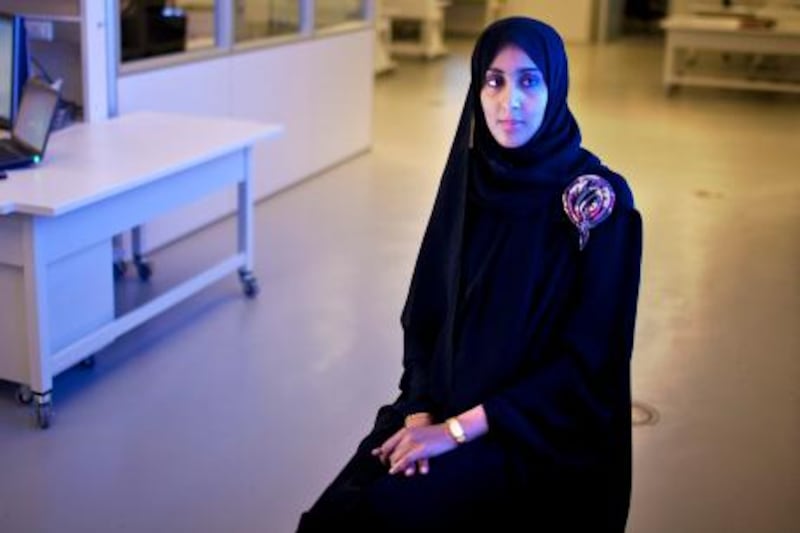ABU DHABI // There are many places in Abu Dhabi where a plant that can tolerate the desert's harsh climate and salty water would thrive.
Wafa al Yamani has been tasked with finding the best one.
Ms al Yamani, 24, is investigating the best site for farming Salicornia, a possible source of biofuel.
A water and environmental engineering student at the Masdar Institute, she has been working to determine the best areas for the crop, which would survive on seawater from the Gulf.
The plant, which is native to the US and Mexico, does not compete with edible crops and feeds from the rich nutrients of shrimp and fish. Local researchers hope to extract oil from its seeds for use in jet fuel.
Ms al Yamani has been working closely with the Environment Agency - Abu Dhabi (EAD) to find 2 square km of land where they believe the plant will give them the best yield.
They have found several promising sites based on the concentration of salinity and closeness to the sea, but will now need to conduct field investigations to determine the environmental impact.
"It is a big challenge," Ms al Yamani said. "It is an important step because we do not want to damage the environment or the ecosystem where small creatures live."
She said the project was unique in that the plant has not been farmed anywhere in the region as a fuel source, despite its tolerance to the climate.
"Kuwait, Saudi Arabia and Egypt have tried to plant it in their countries but only to feed animals," Ms al Yamani said.
"If it works here, we can use it on other lands in the country and apply it further."
Ms al Yamani, who studied environmental science and geology at UAE University, said she hoped for a position at EAD to continue working on the project, which will probably last five to 10 years.
"It is a place I really trust and would like to continue working with," she said.
While working on projects with EAD and other organisations, she "met people from different countries who are thinking naturally as we have learned here", Ms al Yamani said of Masdar Institute.
"I know how to conduct a project, how to consider important components such as sustainability, economic feasibility and safety of the environment … and thinking about the analysis behind it."





